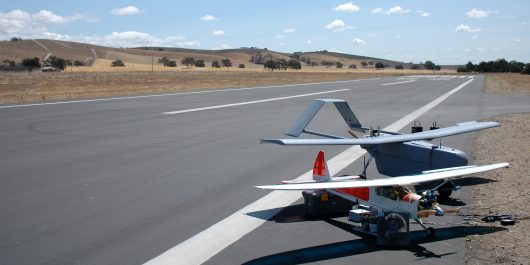Drones Delivering Medicine in Costa Rica

Drones delivering medicine could be a solution for people living in the remote areas of Costa Rica. The indigenous people in these areas are far away from medical facilities and pharmacies. Trekking back and forth from their homes to cities to get medical supplies is a very difficult and time-consuming process. Therefore, many do not get the medicine they need.
As an initiative of Costa Rica’s Social Security System (CAJA), drones will deliver medication to eight indigenous communities in the province of Limón. To launch the program, CAJA has teamed up with the company Zipline.
Zipline, with the tagline, “No Roads, No Problems!” manufactures small robot airplanes called “Zips,” which can carry vaccines, medicine and blood to wherever they are needed. The startup estimates that “two billion people lack adequate access to essential medical products, often due to challenging terrain and gaps in infrastructure.” Zipline offers a simple way to deliver prescriptions to people living in rural regions especially in underdeveloped countries. Zipline is already in use in Rwanda, delivering blood and plasma to hospitals in rural areas. These drones make 50 to 150 deliveries per day.
The Zipline method is easy. After a doctor inputs the prescription into CAJA’s Digital Health Records system, a pharmacist at a local clinic prepares the medication, secures it in a container and places it inside the drone. Now, the Zip can begin its flight to the patient’s home. Once the medicine has been safely parachuted to the destination, the doctor is alerted in order to keep track of who has received medication.
The drones delivering medicine only weigh about 22 pounds. They are equipped with a GPS for location accuracy. Clinical workers can also ensure that the drones are following the correct route. The drones usually travel 62 miles per hour, but can go faster if needed. At such a rate, medication reaches its destination in approximately 45 minutes. As compared to the usual three-day process of getting medication to patients, the drones are cutting the time down dramatically.
In 2017, Zips will deliver approximately 13,200 packages a month, which will cost the Costa Rican government $26,000. This is much cheaper and more effective than alternatives tried in the past, including bicycles, motorcycles and boats. Land transportation methods have had issues because remote areas rarely have paved roads.
If drones delivering medicine are successful in Limón, the program, or one like it, may expand to other communities in need and possibly other countries that face similar issues.
– Karla Umanzor
Photo: Flickr
